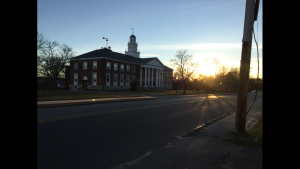This little light of mine, I’m gonna let it shine…
I didn’t attach the music to this one. I think you know the tune. Repeat the above once, then again, adding let it shine, let it shine, let it shine. If you are feeling especially brave and silly, hold up your pointer finger like a candle. If you happen to have small children, you’ve got a ready-made chorus.
It’s a favorite song when we are young; it’s embarrassing from our teen years through most of our twenties, thirties, and forties – unless we’re just singing along to encourage little kids. If we are very wise and very lucky, it’s a treasure we reclaim in our later years, along with Jesus Loves Me, This I know.
The light we hold is ours alone, the unique and precious gift we receive from the One who forms us in holiness. It isn’t our talents or marketable skills, our keen intellect or acerbic wit. It is who we are at our very core, and what we are made of: light and warmth. Such a light and heat isn’t made greater by extinguishing the light of another. It’s meant to dispel darkness, call people home, and illuminate this beautiful creation around us. We don’t create our little lights, we let them shine.
When I die, I hope someone sings this song. I hope I’ve done my best to let my little light shine. I hope.

